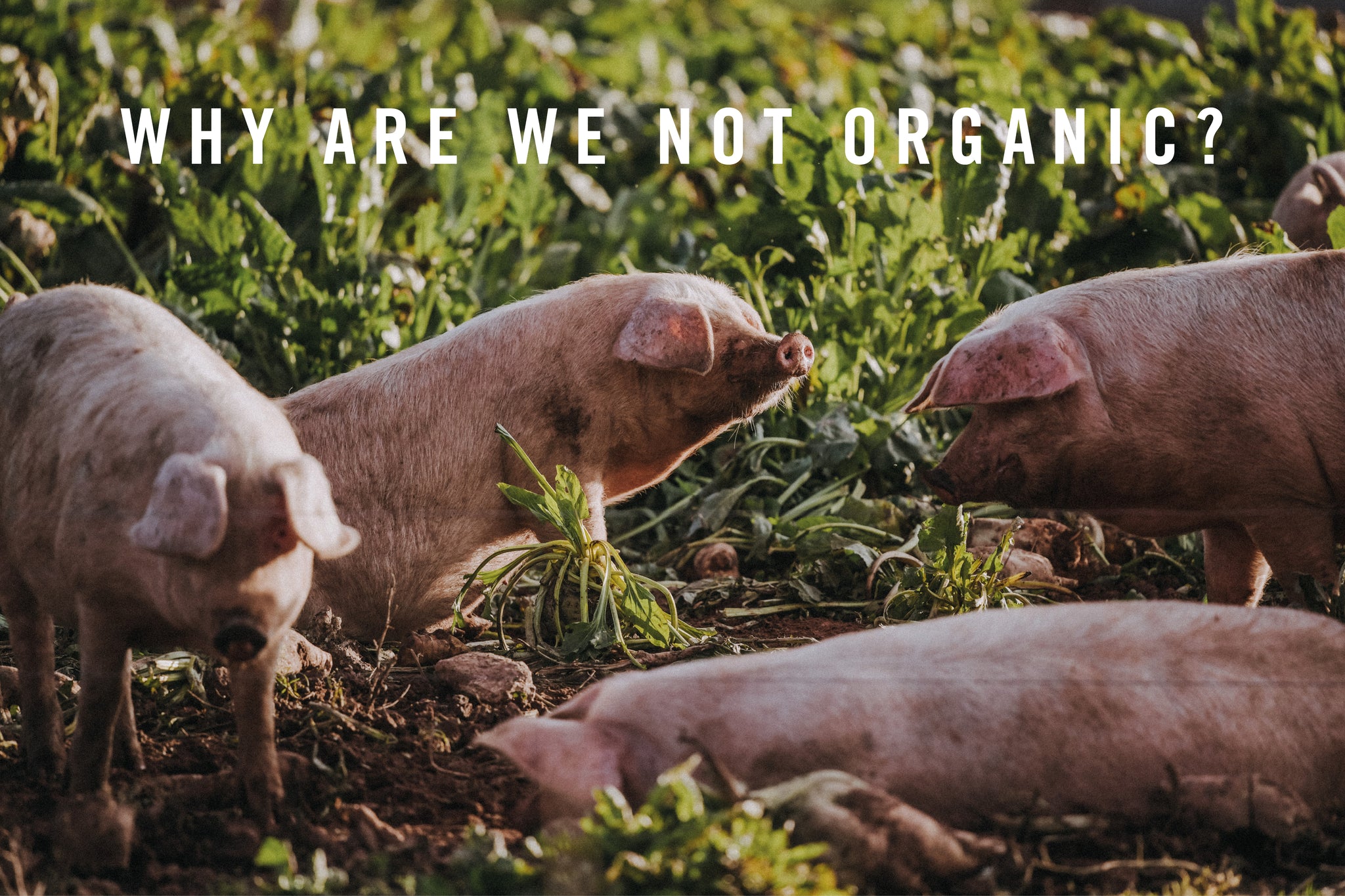

One of the most common questions we get asked is ‘are you organic’? Here we have outlined why we have never gone down the route of organic certification.
Our Mission
When we founded Pipers Farm 30 years ago our purpose was to produce food that is a pleasure to eat because it tastes fantastic, is grown ethically and in harmony with nature. Every farming decision we make is influenced by those simple objectives.
We strongly believe in the principles set out by the original pioneers of the organic movement. However right from the outset, we felt the word 'organic' would eventually lose its meaning. Instead, we decided we wanted to produce food with our own set of standards and be totally transparent in discussing with you our methods.
What are the differences in Organic standards and Pipers Farm standards?
There are various different governing bodies for organic standards, each one has a slightly different set of rules. However, you can find out about the most widely used body here.
There are two important pillars in the way we produce our food versus organic methods:
Small Scale Farmyard Abattoirs
The vast majority of meat sold in the UK is processed through huge industrial abattoirs.
These are a significantly weak link in the modern food chain. You will have read multiple times about how the standards that can often slip in these highly geared factories. Whether meat is organic or non-organic, it is mostly killed in these same large-scale abattoirs.
Near us, for example, we have a poultry plant that kills a million chickens a week, both organic and non-organic. These industrial operations are in many ways responsible for the perception and reality that modern meat is ‘harmful’ because of food poisoning bacteria until rendered safe by the consumer.
At Pipers Farm we work with a small family run abattoir based 10 miles away from our farm. We have worked with the team for over 25 years and trust them implicitly. As a highly skilled job and such an important part of the process, we will never compromise on working with small-scale businesses where we have total control and transparency over slaughter. The abattoir we choose to work with is not certified as organic.
Our poultry are killed by hand on the farm in which they were grown, which again does not carry an organic slaughter certification.
Castration of pigs
All of our pigs are native breeds which are grown much more slowly than modern hybrid pigs. This means because our pigs are grown so slowly the male pigs are grown well beyond sexual maturity.
Castrating our pigs at one-week-old means that these pigs can then lead a completely stress-free life, growing slowly in family groups alongside their sisters, in a wonderfully healthy outdoor environment.
Castration of pigs is not permitted under organic certification, however we belive it a fundamental welfare standard to producing content Pipers Farm pigs.
The bigger, Pipers Farm, picture
We have always been inspired by Carlo Petrini who founded the Slow Food movement.
In so many ways it encapsulates our philosophy which is that food is about much more than a mouthful, it is about the landscape it is from, the terroir; and the people who for generations have nurtured that land; and the families within the local community who are all part of the process, and they in turn are the wheels of the local community... the village hall, the church, the school, the shop, the pub; and then it is about the people and the occasion when the food is eaten and enjoyed for all that it stands for.
This is all part of the Pipers Farm philosophy and we are proud that we have been unwavering in our commitment to it for 30 years.
Although there is no certification which covers the breadth of what Pipers Farm stands for, we are totally transparent about every detail of what we stand for and why. We welcome any questions from our customers who want to understand exactly what we do and why.